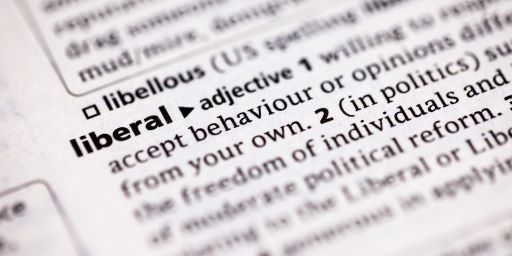Liberty Matters
Reason, Sentiment, and the Rational-Irrational Polarity
 In this post I focus on Giandomenica Becchio's treatment of what she describes as "Pareto's dilemma," which Alberto Mingardi raised in his original post; in my next post I will consider Rosolino Candela's distinction between classical liberalism as worldview and as research program, which Alberto raised in his original post. While I agree with Giandomenica's addition of Pareto as a modern moralist to Alberto treatment of Pareto as a classical liberal and as a political realist, I am modestly uneasy with portraying Pareto as having an irrationalist side. Modern behavioral economics has advanced irrationality as a human proclivity in its effort to articulate new forms of market failure, and Pareto surely would not want to be enlisted in the service of such claims.
In this post I focus on Giandomenica Becchio's treatment of what she describes as "Pareto's dilemma," which Alberto Mingardi raised in his original post; in my next post I will consider Rosolino Candela's distinction between classical liberalism as worldview and as research program, which Alberto raised in his original post. While I agree with Giandomenica's addition of Pareto as a modern moralist to Alberto treatment of Pareto as a classical liberal and as a political realist, I am modestly uneasy with portraying Pareto as having an irrationalist side. Modern behavioral economics has advanced irrationality as a human proclivity in its effort to articulate new forms of market failure, and Pareto surely would not want to be enlisted in the service of such claims.Sure, Pareto explored how people could use their faculties of reason "not to discover the truth but to manipulate it," as Giandomenica notes. Human passion is very much in the foreground of Pareto's thinking. All the same, I think we should distinguish reason as one of the human faculties from rationality as an ideological fiction that enables the closing of many economic models. One can appreciate that humans possess a faculty of reason without embracing rationality as ideology. In this regard, I think Thomas Szasz's (1961) articulation of the myth of mental illness has much value to add to the contemporary understanding of human conduct, and of Pareto.
Pareto's disjunction between logical and non-logical action only superficially maps onto a disjunction between rational and irrational action. I think Giandomenica's description of Pareto as having recognized an "inconvenient truth" is accurate, only I think the rational-irrational polarity miscasts a bit Pareto's scheme of thought.
If rationalism implies a belief in the human ability to use reason to order societies to good effect, Pareto was not a rationalist. Yet Pareto believed strongly in the beneficial properties of free markets as the basis of economic organization. Here we must recognize with Pareto the simple fact that reason cannot select the objects on which it works. There must be something prior to reason that selects the material on which people apply their faculties of reason. This something Daniel Dennett (1978) characterized as a "consideration generator" to capture the idea that sentiment nominates material for reason to work on. In a similar vein, Martha Nussbaum (2001) explored the intelligence of emotions. Pareto's distinction between logical and non-logical action is surely compatible with the thinking of Dennett, Nussbaum, and Szasz as well as with Gerd Gigerenzer's treatment of rationality within an ecological framework.
Classical liberalism emerged with the disintegration of the feudal regimes in Europe, where economists sought to understand how good social order could arise without direction from what had been lords of the manor. Pareto's moralist side recognized this good result, and his scientific side sought to explain how this was possible without political direction. Pareto's scientific side also recognized that the spread of commercial relations was limited by the presence of the political in society and sought to understand why the political impeded the spread of liberty, all the while invoking ideological derivations that identified politics with liberty.
It is fully within the spirit of Pareto's analytical framework to recognize that people would act differently within market institutions than they would act within political institutions. I would not, though, attribute this difference to the presence of human irrationality but rather to the direction that different environments for human action give to the operation of human sentiments. For Pareto, humans were rooted in sentiment. The spread of market interaction after the demise of feudalism led people to flourish within a liberal market order. Not to be ignored, though, is the ability of sentiment to lead people to support programs that restrict liberal market interaction.
To illustrate with a simple model, suppose five entrepreneurs open commercial enterprises. After some passing of time, three of those enterprises are liquidated because their owners decided they would never be able to cover their costs. By the logic of the market system, those entrepreneurs could either use their liquidated proceeds to start a new business or offer to work for one of the successful entrepreneurs. This kind of calculation would illustrate logical action. Yet sentiment is always in play. A politician might campaign on a platform of providing equal opportunity for all, which would entail subsidies for people who start new businesses financed by taxes on successful businesses. Pareto recognized that the world runs on sentiment, with reason operating in the service of sentiment.
Copyright and Fair Use Statement
“Liberty Matters” is the copyright of Liberty Fund, Inc. This material is put on line to further the educational goals of Liberty Fund, Inc. These essays and responses may be quoted and otherwise used under “fair use” provisions for educational and academic purposes. To reprint these essays in course booklets requires the prior permission of Liberty Fund, Inc. Please contact oll@libertyfund.org if you have any questions.